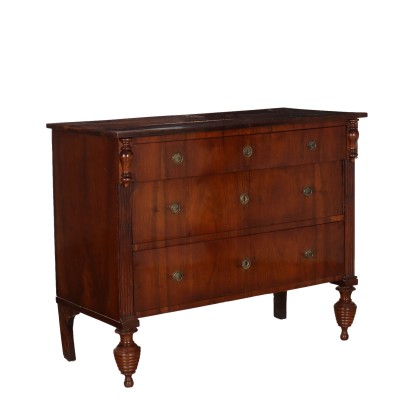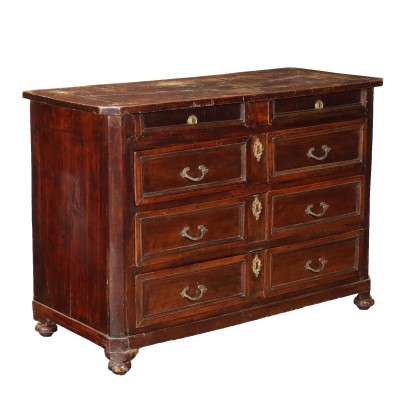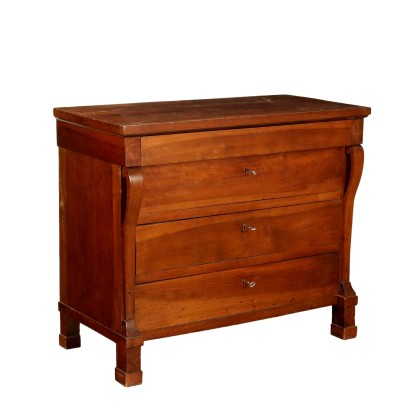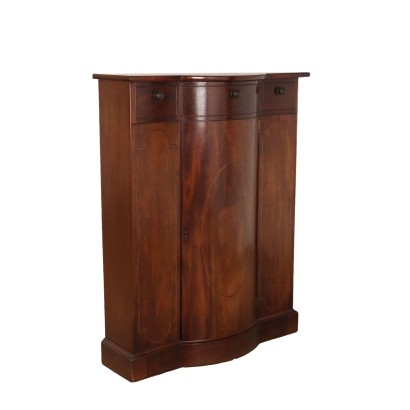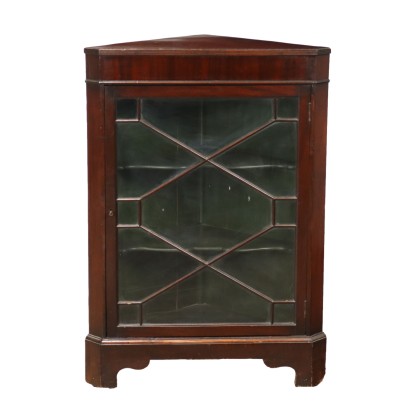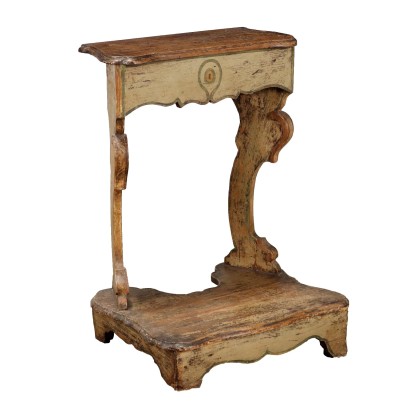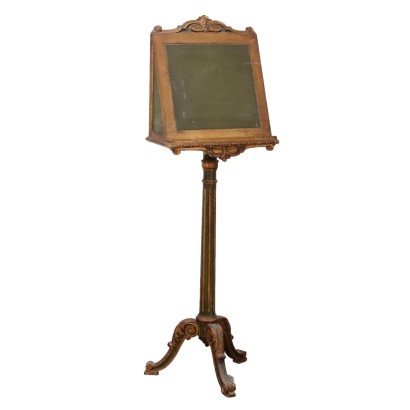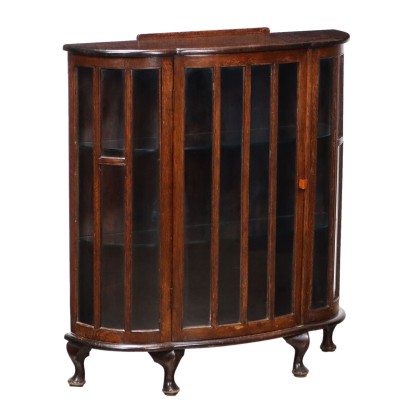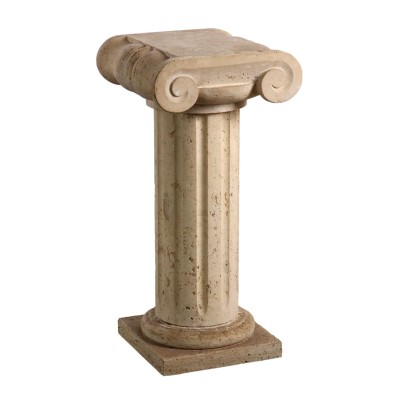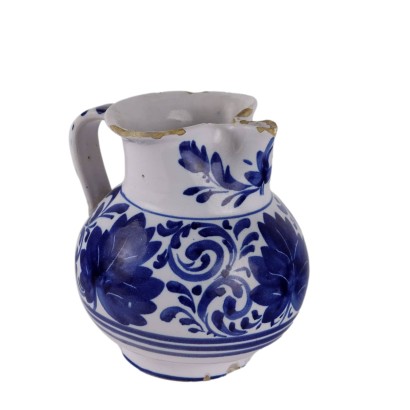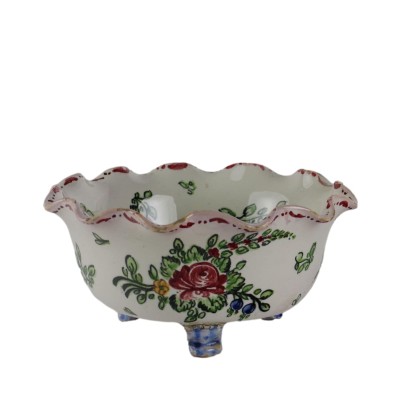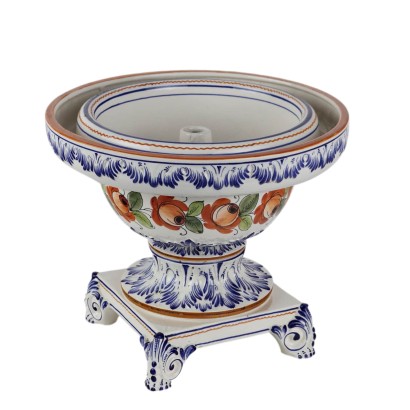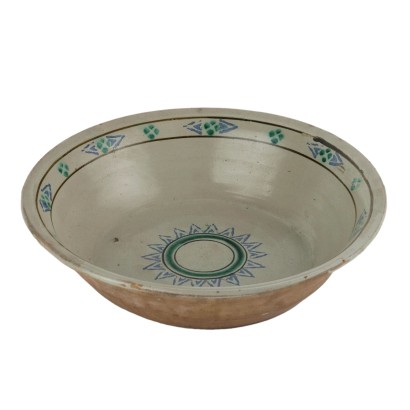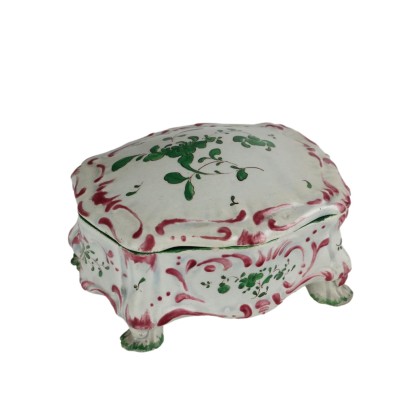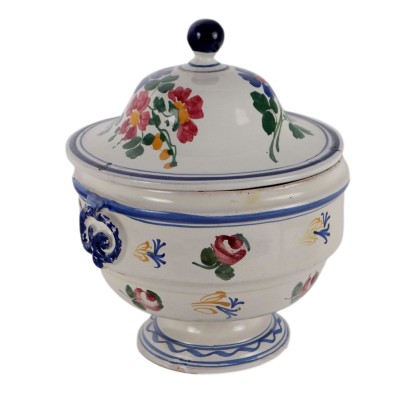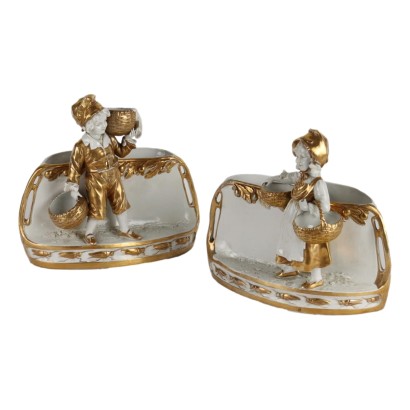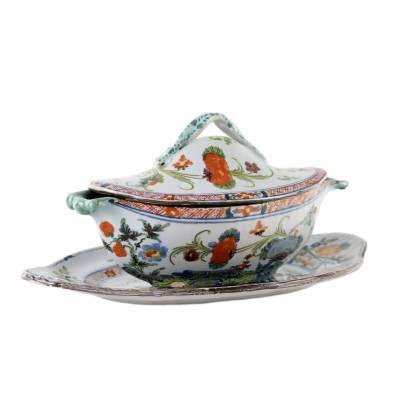Walnut Chest of Drawers - Italy Early 19th Century
Features
Italy Early 19th Century
Style: Bourbon Restoration (1815-1830)
Age: 19th Century / 1801 - 1900
Origin: Italy
Description
Restoration chest of drawers in walnut, three drawers in front, slightly protruding drawer under the top, truncated conical feet, interior and back in poplar. Top replaced. Italy, early 19th century.
Product Condition:
Product that due to age and wear requires restoration and polishing. We try to present the real condition of the furniture as completely as possible with the photos. If some details are not clear from the photos, what is reported in the description is valid.
Dimensions (cm):
Height: 102
Width: 125
Depth: 59
Maximum size (cm):
Height: 102
Width: 125
Depth: 59
Additional Information
Style: Bourbon Restoration (1815-1830)
Starting from the Congress of Vienna in 1815, the arts also expressed the return to monarchical order and the desire for order after the years of war.The stylistic characteristics are an evolution of the Empire style, but with simpler lines and stripped of the typical symbols of the Napoleonic period.
There is greater attention to the practicality of the furniture and domestic use.
Find out more with the insights of our blog and FineArt on the Restoration style:
The return to the past in the Restoration period
Gueridon Restaurazione
INSERT ADDITIONAL LINKS
Austrian taste for Baroque
The history of French furniture
Age: 19th Century / 1801 - 1900
19th Century / 1801 - 1900Main essence:
Walnut
Walnut wood comes from the plant whose botanical name is juglans regia , probably originally from the East but very common in Europe. Light or dark brown in color, it is a hard wood with a beautiful grain, widely used in antique furniture. It was the main essence in Italy throughout the Renaissance and later had a good diffusion in Europe, especially in England, until the advent of mahogany. It was used for solid wood furniture and sometimes carvings and inlays, its only big limitation is that it suffers a lot from woodworm. In France it was widely used more than anything else in the provinces. In the second half of the eighteenth century its use decreased significantly because mahogany and other exotic woods were preferred.Poplar
Essence considered "poor", it is a white wood, with yellowish or greyish shades, light and tender, which is easily damaged. It is used for rustic furniture or in the construction of furniture. The most valuable use it has had in the history of furniture is in Germany, in the 19th century, for veneers and inlays in the Biedermeier period.Other customers have searched:
Cassettiera, cassettone, settimanale, mobile da camera, commode, canterano, comò..
Approfondimenti
Scopri di più su cassettiere e comò grazie ai nostri approfondimenti:
La storia nascosta in due antichi cassettoni
Conoscere il Neoclassicismo attraverso un cassettone piacentino
Un comò piemontese influenzato dal fascino per l'Oriente
Un signorile comò rococò napoletano
Una caratteristica cassettiera con alzata emiliana di perfetto gusto barocchetto
E per gli appassionati dal gusto più raffinato, c'è FineArt:
Commode a tre cassetti G.B.M., inizio XIX secolo
Canterano dipinto
Canterano emiliano, primo quarto XVIII
Cassettone a ribalta romano, secondo quarto XVIII secolo
Comò attribuito a Luigi Viglione, Luigi XVI, fine XVIII, Torino
Coppia di comò e comodino di Maggiolini
Sull'antiquariato in generale dai un'occhiata anche a
Classic Monday: da un pezzo dei nostri magazzini alla storia dell'antiquariato
L'antiquariato dalla A alla Z: il Dizionario dell'Antiquariato
Il dizionario dell'antiquariato - Lastronatura
Il dizionario dell'antiquariato - Mascherone
Il dizionario dell'antiquariato - Natura morta
Il dizionario dell'antiquariato - Opificio
Il dizionario dell'antiquariato - Pastiglia
Il dizionario dell'antiquariato - Savonarola
Il dizionario dell'antiquariato - Rosone
Approfondimenti
Scopri di più su cassettiere e comò grazie ai nostri approfondimenti:La storia nascosta in due antichi cassettoni
Conoscere il Neoclassicismo attraverso un cassettone piacentino
Un comò piemontese influenzato dal fascino per l'Oriente
Un signorile comò rococò napoletano
Una caratteristica cassettiera con alzata emiliana di perfetto gusto barocchetto
E per gli appassionati dal gusto più raffinato, c'è FineArt:
Commode a tre cassetti G.B.M., inizio XIX secolo
Canterano dipinto
Canterano emiliano, primo quarto XVIII
Cassettone a ribalta romano, secondo quarto XVIII secolo
Comò attribuito a Luigi Viglione, Luigi XVI, fine XVIII, Torino
Coppia di comò e comodino di Maggiolini
Sull'antiquariato in generale dai un'occhiata anche a
Classic Monday: da un pezzo dei nostri magazzini alla storia dell'antiquariato
L'antiquariato dalla A alla Z: il Dizionario dell'Antiquariato
Il dizionario dell'antiquariato - Lastronatura
Il dizionario dell'antiquariato - Mascherone
Il dizionario dell'antiquariato - Natura morta
Il dizionario dell'antiquariato - Opificio
Il dizionario dell'antiquariato - Pastiglia
Il dizionario dell'antiquariato - Savonarola
Il dizionario dell'antiquariato - Rosone
Product availability
The product can be seen at Cambiago
Immediate availability
Ready for delivery within 2 working days from ordering the product.



